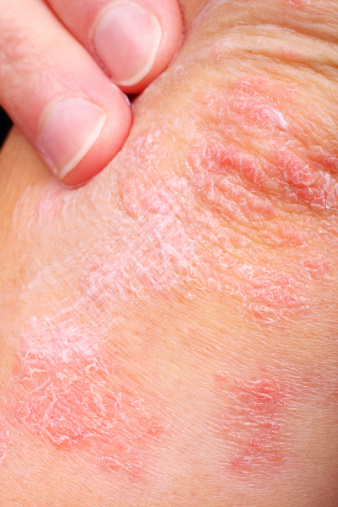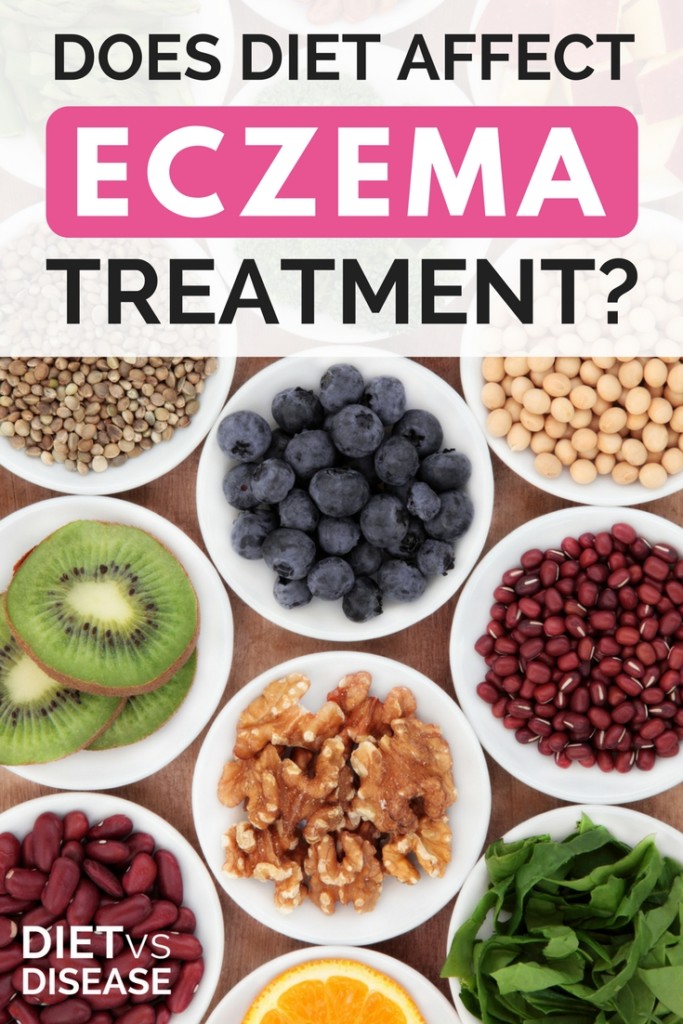There are many recognized triggers of eczema.
However, the role that diet plays is a murky area of research.
This article reviews the current evidence surrounding eczema treatment.
What is Eczema?
Eczema, also referred to as atopic dermatitis (AD), is a chronic and recurrent inflammatory skin condition that causes itchy, red, and swollen patches of skin.
Unlike psoriasis, eczema most often appears on the inside of the elbows and knees.
There are numerous types, but infantile eczema is the most common developing in 1 in 5 infants (1).
However, know that eczema can affect anyone at any age. In fact, 334 million people worldwide were said to have eczema in 2013, and 10-30% of people in the U.S (2).
Unfortunately, rates have increased by 2 to 3-fold in Western countries over the past few decades (3).
Summary: Eczema is a common inflammatory skin condition, and rates are on the rise. The most common type is infantile eczema (occurs in children less than 5 years old).
What are the Causes of Eczema?

Several factors contribute to the likelihood of developing eczema.
Eczema risk factors include:
- Genetics/family history: If one or both parents suffer from eczema, then the child is 2-3 times more likely to suffer. Studies show higher correlation among identical twins (4)
- Environment: Those raised in developed countries with more pollution and colder climates increase risk
- Gender: Females are more likely to suffer than males
- Defects in skin barrier: Eczematous skin may have less water retaining properties (5)
- Immune abnormalities: Eczema may have an autoimmune nature in some individuals. Those with eczema are more likely to suffer from allergy symptoms like asthma, hay fever and food allergies (6, 7).
Summary: Many factors increase the risk of eczema including genetics, gender and immune abnormalities. Eczema is not an allergy but has many overlapping symptoms.
Conventional Eczema Treatment
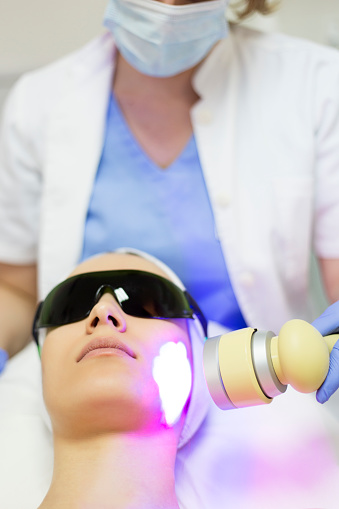
Despite no known cure for eczema, various treatments are available to manage and prevent flare ups.
Dermatologists treat severe eczema with topical (on the skin) or oral medications and phototherapy. Milder cases require skin care and lifestyle modifications (8).
Commonly prescribed medications include anti-histamines, antibiotics, and corticosteroids (oral or topical). Unfortunately, these treatments also have undesirable side effects and lack long-term relief.
Those with eczema are also typically instructed to avoid common triggers including:
- Extreme changes to body temperature
- Poorly moisturized skin
- Dry climates
- Prolonged water exposure
- Exposure to skin irritants (e.g. chlorine, perfumes, smoke, soaps/cleansers, pollutants, itchy clothing, etc.)
- High stress levels
Summary: Eczema has no cure, but there are useful strategies for treating and preventing future flare-ups. Alongside medication, common triggers to avoid include dry climates and high stress levels.
Dietary Triggers to Eczema
Current research is unclear about the connection between eczema and specific food triggers.
Food Allergies and Eczema
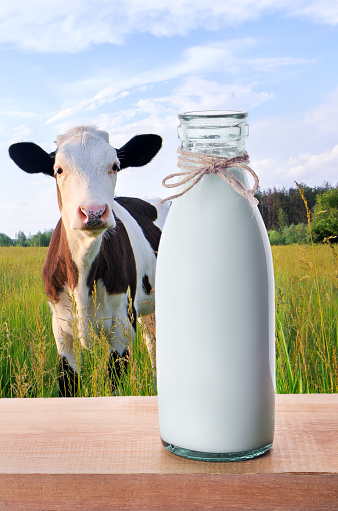
Those with eczema are more likely to have food allergies, particularly in children under the age of 3 or 4.
Common food allergies in children with eczema include cow’s milk, eggs, peanuts, soy, wheat, cod/catfish and cashew.
Studies suggest the connection between childhood food allergy and eczema is 33 to 63%. Adult onset eczema is less likely linked with food allergy at a rate of 10%. However, this does not mean that food allergies cause eczema (10, 11).
Additionally, age reduces the likelihood that food allergy contributes to eczema, as most children outgrow their food allergies (12).
The exception is adults with a birch pollen allergy. One study found their eczema was triggered by foods that cross-react with birch pollen like green apples, carrots, hazelnuts, celery, and pears (13).
Therefore, if you have a birch pollen allergy and eczema, consider removing these foods from the diet.
Food Sensitivities and Eczema
IgE-mediated food allergy testing may have poor reliability in those with eczema.
Adults with eczema typically don’t suffer from classic food allergies (i.e. IgE-mediated allergy), but rather experience delayed reactions after eating certain foods. This type of reaction is a delayed food hypersensitivity, also referred to as a food sensitivity.
Presently, there is no gold-standard test for diagnosing food sensitivities. Therefore, if you suspect food sensitivities trigger your eczema, consider keeping a food/symptom diary and working with a healthcare provider to identify problematic foods (14).
Pseudoallergens and Eczema
The connection between pseudo-allergens like food additives, histamine, salicylates and benzoates triggering eczema is controversial (15).
While the reason is still unclear, it’s theorized that these chemicals can cause inflammation in mast cells, a type of white blood cell. Those with eczema have higher levels of mast cells in the areas of skin with the rash (15).
One double-blind-placebo-controlled study on 50 adults found that 63% benefited from a 6-week low-pseudo-allergen diet. This diet avoided all foods containing preservatives, dyes and or antioxidants (16).
Celiac Disease and Eczema
Those with celiac disease (CD) are 3 times more likely to suffer from eczema (17).
Even relatives of those with CD are twice as likely to have eczema. This connection is based on the possible role of autoimmunity causing eczema (18).
Summary: Childhood eczema is more likely associated with food allergies compared to adult eczema. If you have birch pollen allergy or celiac disease, removing cross reactive foods and gluten helps.
Eczema Elimination Diet
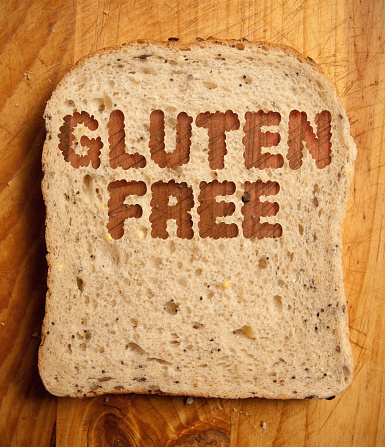
Elimination diets are commonly recommended to help identify dietary triggers for a specific symptom.
A low FODMAP diet for food intolerance is the obvious example.
In this case it can be used as a “home remedy” of sorts for eczema treatment.
Following an elimination diet for 4 to 6 weeks may be beneficial for eczema sufferers. Remove all possible trigger foods and notice any changes in the skin (19).
There is no standardized elimination diet for this condition, but consider developing a plan based on your suspected trigger foods.
Below is a list of eczema trigger foods to help you get started.
- Gluten (if you have celiac disease): wheat, barley, rye, kamut, spelt, etc.
- Foods that cross react with birch pollen (if you have a birch pollen allergy): apples, apricot, cherry, carrots, hazelnuts, peanut, soy, celery, pears, peach, plum, kiwi, parsley
- Pseudoallergens: foods containing food coloring/dyes, preservatives (sorbic acid, benzoates, nitrates), monosodium glutamate (MSG), salicylic acid, antioxidants (e.g. BHT, BHA, tocopherol, propylgallate)
- IgE-mediate food allergies (if you are diagnosed by an allergist)
- Food sensitivities: this list is specific to the individual and based on a thorough review of your food/symptom diary
Monitor eczema symptoms after strict avoidance of these suspected foods. While changes in symptoms may be coincidental, presence of food hypersensitivities could also explain the change.
Thereafter, carefully rechallenge the avoided foods back into the diet, ideally under the supervision of a dietitian or other health professional. When challenging foods, allow a few days between trials for the development of delayed symptoms (12).
This rechallenge plan for those on a low FODMAP diet may help you better visualize the concept.
Keep in mind that eczema has multiple causes and triggers. An elimination diet is not appropriate for everyone, so talk to your doctor or dietitian before starting one.
Summary: Some eczema sufferers may benefit from trialing a 4 to 6-week elimination diet based on their health history. Be sure to undergo this plan with the supervision of a healthcare professional.
Other Home Remedies for Eczema
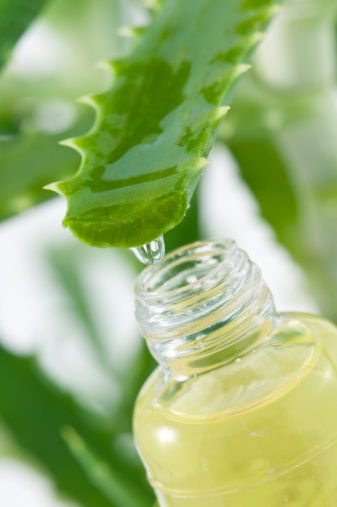
Sometimes a change in diet does not provide much help.
Many search for other natural approaches instead:
- Probiotics: There is strong evidence that the probiotic strains Lactobacillus rhamnosus GG (sold as Culturelle) and Bifidobacterium animalis (also called Bifidobacterium lactis) can help prevent and treat eczema linked with cow’s milk allergy. Varieties with the strain plantarum CJLP133 may also help prevent eczema, although research is in early stages (9, 20).
- Aloe Vera: Applied topically, this may help soothe and hydrate the skin
- Evening Primrose Oil (EPO): One study found that 500mg EPO capsule improved eczema, but this study needs to be repeated (21).
Summary: There are many other natural therapies to help relieve eczema, however the evidence on most is limited. Consider these only after consulting with your doctor.
Treating Eczema Is Complex
Eczema is a complex inflammatory skin condition.
It’s most common in children, but can develop at any age.
Conventional treatment options are available, yet don’t offer long-term relief or a cure.
Unfortunately, there are no solid dietary recommendations either. Removing any known food allergies or sensitivities is a good place to start, which is best done through a structured elimination diet.
There are certain probiotic strains that are also worth exploring if you are struggling with symptoms.
Until we know more, it’s important you pay close attention to your body and notice if there are any specific dietary triggers for you.

